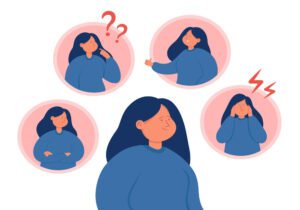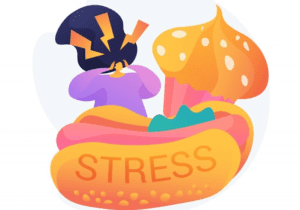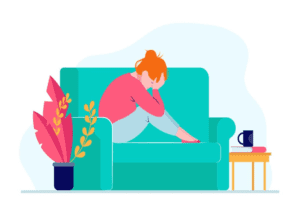Parents – Did You Know ? It Isn’t Only About Your Child
This article has been researched and written by Sara Caroppo. AI has not been used in producing this article.
One of the most common things parents say when walking into the therapy room is: “We just need some help with our child’s behavior.”
It makes perfect sense. When a child is struggling — especially in ways that are disruptive or emotionally intense—the instinct is to focus on the child as the source of the problem. What often goes unnoticed, however, is how deeply a child’s behavior is connected to their environment, particularly to the tone, reactions, and emotional cues of their caregivers.
Why Is it important to work with parents too?
As a Child Psychologist, I work closely with parents. Not to judge or criticize, but because parenting plays a central role in shaping how children learn to regulate their emotions, respond to challenges, and build relationships. Change begins in the family system, not just within the child.
Everyday Parenting and Behavioral Psychology:
Many parents are already applying psychology in daily routines—often without realizing it.
- Positive reinforcement happens when a parent praises a child for helpful behavior, such as tidying their room. If sincere and consistent, this praise increases the likelihood of the behavior being repeated.
- Negative punishment involves removing a valued item or privilege, such as screen time, following unwanted behavior. The goal is to decrease that behavior over time.
These ideas go back to BF Skinner’s work in behavioral psychology. In his famous “Skinner’s Box” experiments, he showed how behavior can be shaped by rewards or by removing rewards. Children, like adults, respond to environments in patterned ways. If misbehavior consistently draws attention, it is reinforced. If calm behavior is ignored, it may fade. These quiet associations can be remarkably enduring.
When Effort Begins to Fade
Another important concept is learned helplessness, developed by psychologists Martin Seligman and Steven Maier.
This occurs when, after repeated setbacks or unclear responses from caregivers, a child begins to believe their efforts don ‘t make a difference. Over time, they may stop trying altogether.
Children in this state may appear anxious, disengaged, angry, or unusually passive. This is rarely laziness or defiance. More often, it signals that something important has been missed. When adult feedback is unpredictable or overly critical, even well-intentioned children can lose confidence in their ability to create change.
The Messages Behind the Moments
Every interaction between parent and child carries meaning. A raised eyebrow, a soft tone, a pause, a quick reaction—all of these shape a child’s understanding of themselves and the world. That’s why child therapy often begins with parents reflecting on the messages they send, often unintentionally. Behavior is never random—it’s communication, a response to what the child has learned about safety, connection, and expectation.
When parents respond with more awareness and consistency, the change is often visible in the child. Parental involvement is not simply part of the process—it is the process.
How to Help Your Child with Anxiety Through Divorce
Divorce is a significant change that affects every member of a family. For children, the uncertainty and adjustments …
Depression vs Sadness: Understanding the Difference
While often used interchangeably, the terms “sadness” and “depression” represent distinct emotional states, each with …
5 Simple Mental Health Practices for Your Everyday Life: Nurturing Your Body & Mind
In today’s fast-paced world, it’s becoming increasingly evident that we need to place our mental health at the forefront
Ways to Reduce Anxiety in 2024
As we say farewell to 2022 and usher in the New Year, we look towards the future. With New Year’s resolutions on the docket, many of us are striving to achieve a calm life …
Navigating Compassion Fatigue in the Digital Age: A Call to Prioritize Mental Well-Being
Amid the constant stream of information and images that flood our screens, the toll on our mental well-being can be …
The Link Between Anxiety and Overeating
All of us have encountered moments of stress and unease throughout our lives. These feelings of anxiety not only bring…
10 Steps To Fix A Toxic Relationship
Every relationship has its fair share of ups and downs, but when toxicity creeps in, it can become a serious challenge. Toxic relationships can be emotionally draining and detrimental to our overall …
Exploring the Benefits of EMDR Therapy for Anxiety and Depression
Anxiety and depression are two of the most common mental health disorders worldwide, affecting millions of people every year. While traditional talk therapy and medication can be …
Health Effects of Untreated Depression
It’s very common to feel sadness at one point or another in our life. Depending on your specific circumstances, you may even feel …
Psychologists vs. Psychiatrists – What’s the Difference?
Clients shouldn’t have to jump through hoops to understand who the perfect candidate is for treating their emotional and/or behavioral struggles. Yet, understanding the type of provider you should see during …











